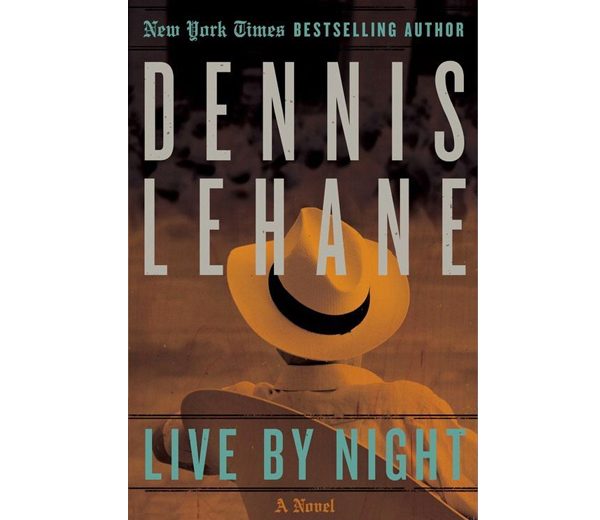Dennis Lehane Is Furious the Globe Called His White Character a 'Magical Negro'

Dennis Lehane got so angry at a Globe review of his new book Live By Night that accused him of creating a stereotypical “Magical Negro” character, that he learned to use Facebook so he could turn the tables and call the review racist. And not because he says his character isn’t an African American stereotype but because he says his character isn’t an African-American at all. Well played, Lehane.
Freelancer Eugenia Williamson’s review, though generally favorable, says, “The novel’s flaws converge during a stunningly embarrassing scene” in which the main character, Joe, meets “what Spike Lee would call a Magical Negro named Turner John.” A Magical Negro is a phrase used to describe the trope of an African-American character in fiction, often endowed with supernatural abilities, who assists the protagonist, usually a white character. Think Will Smith in “The Legend of Bagger Vance.” Or, elsewhere in the bestselling thriller world, several characters in Stephen King’s fiction, who are often criticized as Magical Negros.
Here’s how Lehane responded by Facebook:
In 18 years, I’ve never responded to a critic. But in the review of Live By Night in this Sunday’s Boston Globe, the critic leveled a charge of racism at me for the crime of creating a character who is a “Magical Negro” named Turner John. This would be fair, I guess, if only Turner John were actually black. Instead, he’s, um, white … he is poor, runs moonshine and women, and speaks in dialect, character traits that led the reviewer to assume he was African American which is, ironically, a pretty racist assumption.
The Globe ran a correction, noting that “Because of a reporting error, an earlier version of this book review incorrectly described the race of the character Turner John. He is white.” But Lehane noted to the Herald (ever gleeful to cover the Globe‘s oopsie,) that the correction didn’t repair all the damage. “For [Globe editor] Marty Baron, [book editor] Nicole Lamy or the reviewer to then not have the simple decency to contact me and say, ‘Sorry we implied you were a racist, Dennis,’ shows a serious lack of class on their part.”
Reached by email, Williamson declined to comment either on her initial impressions or Lehane’s response. But we revisited the “stunningly embarrassing scene” to see just how Lehane portrays Turner John, and whether there was room for confusion. (If you’d like to do the same, much of it is searchable in the Amazon preview.)
Here’s the physical description when we meet the bootlegger.
Turner John, a tall, skinny, and severe-looking man with eyes and hair the same brown as his suit…
And here’s a bit of the dialect in which he speaks. (The action happens in Florida in the 1920s.)
I had me a fine daddy. Only beat me hard when I had it coming and never when he’d taken to drink. Mostly, he’d just whack my head when I snored. I’m a champeen in the snoring sir, and my daddy just couldn’t abide it when he was dog tired.
There’s really nothing explicitly racial in the depiction. (And race relations isn’t a subject from which Lehane typically shies away. Williamson’s review notes that the protagonist is anachronistically progressive in his racial politics throughout the book.) That makes sense. Lehane probably wouldn’t have taken to Facebook in the first place if he’d had a weak defense. In fact, he basically had to learn to use Facebook so he could level that defense. Here’s his follow-up post.
It’s weird to be actually posting on my FB page–first, I had to ask my perfectly awesome assistant, Theresa, how to find it and then my wife helped me post; yeah I’m THAT sad at this.
Yes, a Globe review did make Dennis Lehane so mad that he had to ask someone to show him how to use Facebook.


